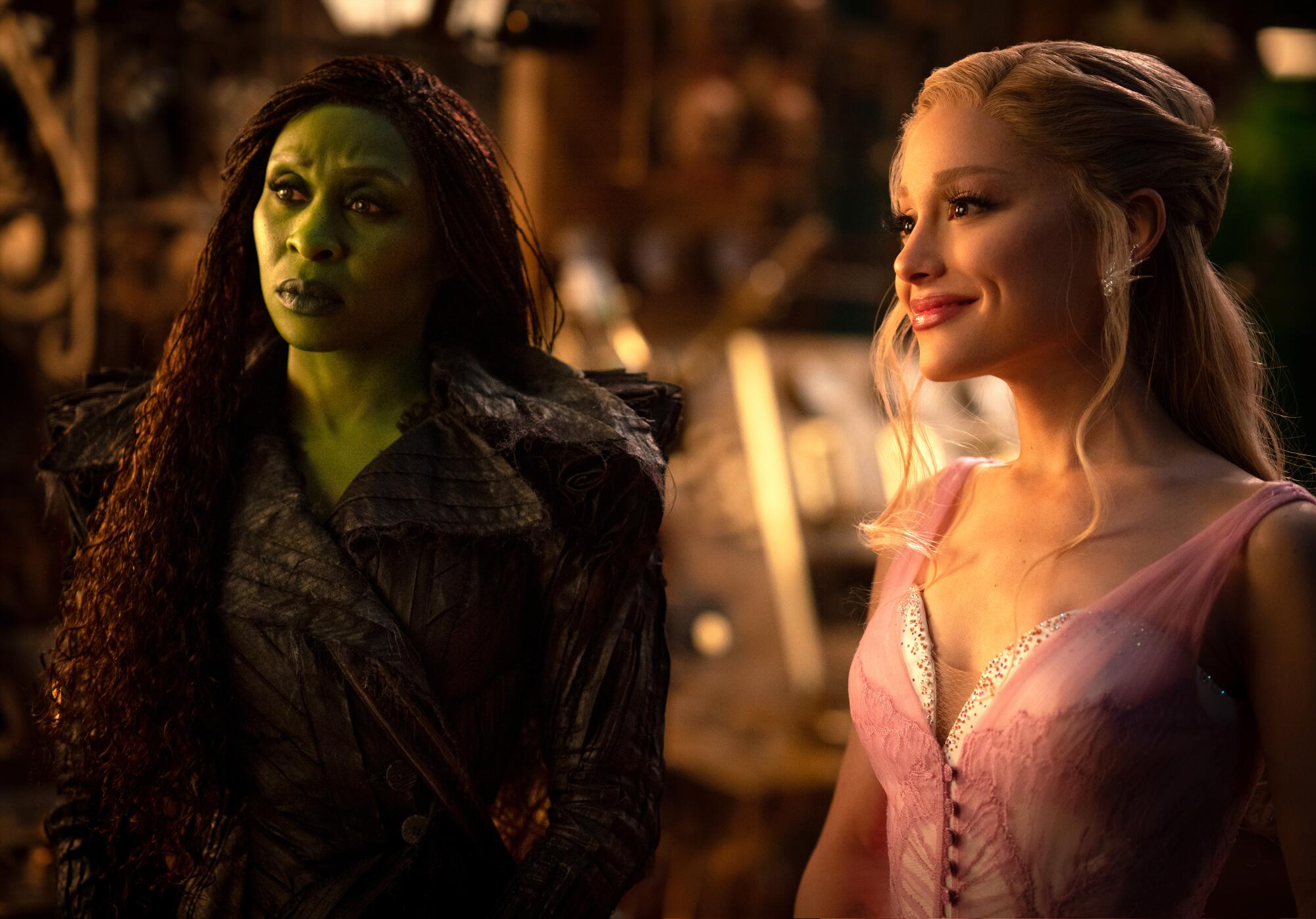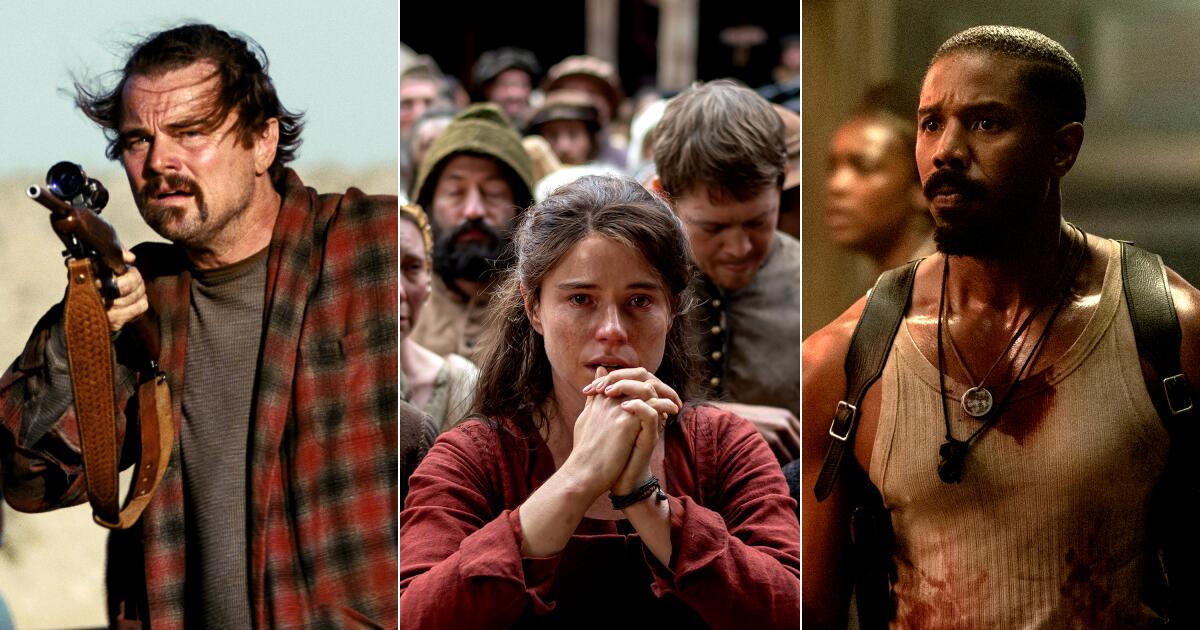The biggest surprises and snubs of the 2026 Oscar nominations
Oscar nominations landed Thursday morning and you’d really have to be a curmudgeon to complain, what with the year’s two best films, “One Battle After Another” and “Sinners,” hauling in the most nods. One of these movies is going to win best picture (probably “One Battle”), continuing a nice little streak of top-shelf winners. “Oppenheimer” to “Anora” to “One Battle After Another”? That’s the best run since the early ’90s when “The Silence of the Lambs,” “Unforgiven” and “Schindler’s List” prevailed.
Of course, not everyone is celebrating this morning. “Wicked: For Good”? The complete disrespectation! The latest “Avatar” sequel? More ash than fire.
The Oscars cap their nominees at five per category (with the exception of best picture), leading, invariably, to some surprises and omissions — some egregious, some understandable. For alliteration and search engine optimization, we’ll call these “snubs,” though you’d have to be a true narcissist, say somebody who’d threaten to invade a country because he felt scorned over not winning a prize, to really take it personally.
Fortunately, Hollywood is free of ego, leaving us just to rationally contemplate the academy’s choices and examine the snubs and surprises of the nominations for the 98th Academy Awards, which will be presented on March 15.

Cynthia Erivo, left, and Ariana Grande in “Wicked: For Good.”
(Giles Keyte/Universal Pictures/Giles Keyte / Universal Pictures)
SNUB: “Wicked: For Good” (picture)
The first “Wicked” earned 10 nominations last year, going on to win two Oscars. Surely, the sequel would be popular too. But the box office was down (more than $200 million globally), the reviews were mostly meh, and academy members took note. Duplicating the first movie’s Oscar haul was going to be a challenge, as some voters would naturally resist rewarding something they had just honored a year ago. And the material posed its own challenges, as the musical’s second act isn’t as fun or focused. But to go from 10 nominations to being completely shut out? What a difference a year makes.
SURPRISE: “F1” (picture)
There’s a demographic in the motion picture academy affectionately known as “steak-eaters,” men in the autumn of their years who appreciate a good Dad Movie centered on old(ish) guys who most definitely know best. With membership broadening, this demo has lost a bit of its influence over the years. But the dudes can take a victory lap today, celebrating the nomination of Joseph Kosinski’s swaggering, vroom-vroom sports movie.
SNUB: “Avatar: Fire and Ash” (picture)
The third “Avatar” movie has grossed $1.3 billion worldwide, which is impressive, though still about $1 billion behind 2022’s “Avatar: The Way of Water.” That movie, like the first one, was nominated for best picture. But “Fire and Ash” couldn’t even manage a nod from the Producers Guild, a group that operates from a bigger-the-better mentality. There’s a feeling of fatigue about the franchise, with even creator James Cameron giving the distinct impression that he’s ready to move on. Here’s another signal that it’s time.
SNUB: “It Was Just an Accident” (picture)
The warning signs were there. Jafar Panahi’s searing (and often funny) social critique of authoritarianism did not fare well on the Oscar or BAFTA early lists. But with the current political climate and the alarming events transpiring in Panahi’s native Iran, it still felt like it’d make the best picture cut. Its absence feels like a big miss or, less charitably, a dereliction of duty.

Stellan Skarsgård, left, and Elle Fanning in a scene from director Joachim Trier’s “Sentimental Value.”
(Kasper Tuxen/Neon)
SURPRISE: Joachim Trier, “Sentimental Value” (director)
Trier seemed to be slipping down the ranks of contenders, but voters no doubt appreciated his film’s salty view of Hollywood as well as the way “Sentimental Value” subtly shifted between past and present, hope and hurt. Trier also earned an original screenplay nomination, repeating the success he enjoyed with his last movie, “The Worst Person in the World,” also starring Renate Reinsve.
SNUB: Guillermo del Toro, “Frankenstein” (director)
Scorsese stumped for him, as did David Fincher, George Lucas and Jason Reitman. “It’s a remarkable work,” Scorsese said during a Q&A with Del Toro. “It stays with you. I dreamed of it.” The affable, movie-loving Del Toro has won many fans inside and outside the industry over the years, along with Oscars for directing and producing the 2017 best picture winner “The Shape of Water” and for “Pinocchio,” the enchanting 2022 movie that snagged animated feature. “Frankenstein” isn’t his best work, but Del Toro did snag a Directors Guild nod. And “Frankenstein” itself earned 9 Oscar nominations. The directors branch, though, went with Trier.
SNUB: Jafar Panahi, “It Was Just an Accident” (director)
Panahi has had quite the year: He won the Palme d’Or at Cannes in May and was sentenced in December to one year in prison for “propaganda activities” related to his work. Both speak to the effectiveness of “It Was Just an Accident,” a withering critique of the cruelty and corruption of an authoritarian regime. Panahi did receive his first Oscar nomination, an original screenplay nod.
SURPRISE: Kate Hudson, “Song Sung Blue” (lead actress)
Hudson’s winning turn in this sincere heart-warmer about a husband-wife Neil Diamond tribute act gave the actor her first nomination since her spectacular arrival a quarter-century ago in “Almost Famous.” “Song Sung Blue” had its own lane in this race, appealing to voters starved for the kind of sincere adult drama that studios once routinely made. And Hudson had a number of famous friends — Demi Moore, Reba McEntire and, of course, her mom, Goldie Hawn — hosting screenings and singing her praises. Maybe even singing some Neil Diamond songs. Who can resist? Not voters.

Chase Infiniti in “One Battle After Another.”
(Warner Bros. Pictures)
SNUB: Chase Infiniti, “One Battle After Another” (lead actress)
Infiniti’s placement in the lead category, clearing the decks in supporting for co-star Teyana Taylor, raised a few eyebrows. She’s only in the movie for about half an hour, and though her character drives the action and ends the movie in spectacular fashion, that wasn’t enough in a category flush with weightier work.
SNUB: Amanda Seyfried, “The Testament of Ann Lee” (lead actress)
For true believers in Seyfried’s frenzied work in Mona Fastvold’s story of devotion and delusion, it’s hard to shake this one off.
SNUB: Cynthia Erivo, “Wicked: For Good” (lead actress)
Here’s the rub: The second half of “Wicked” no longer centers Erivo’s Elphaba. When she’s on the screen — and not wearing that sex cardigan — she’s still great, masterfully conveying Elphaba’s vulnerability and sadness. But in a competitive lead actress category, Erivo simply didn’t have the screen time to convince voters to give her an encore nomination.
SURPRISE: Delroy Lindo, “Sinners” (supporting actor) Lindo finally earned his first Oscar nomination, riding the wave of “Sinners’” record haul. His portrayal of the world-weary Mississippi bluesman Delta Slim was central to the movie’s exploration of life in the Jim Crow South and included a powerful monologue that told the story of the lynching of a fellow musician. The movie wouldn’t have been as special without it.

Paul Mescal in “Hamnet.”
(Agata Grzybowska / Focus Features)
SNUB: Paul Mescal, “Hamnet” (supporting actor) He played Shakespeare, but voters weren’t in love. How sharper than a serpent’s tooth it is to have a thankless audience.
SNUB: Ariana Grande, “Wicked: For Good” (supporting actress)
Grande functioned as a co-lead in the first “Wicked,” winning a supporting actress nomination last year, and took center stage in the sequel. But her Oscar fortunes waned as “Wicked: For Good” couldn’t replicate the spell the original cast on audiences. It’s possible too that, good as she is at light comedy, some voters didn’t buy Glinda’s transformation after spending nearly the entire movie betraying Elphaba at every turn. With friends like her, who needs enemies?
SURPRISE: Elle Fanning, “Sentimental Value” (supporting actress)
SAG-AFTRA voters ignored the cast of “Sentimental Value” for the Actor Awards, but the ensemble came back in a big way with the academy. Fanning, playing an A-list American actress navigating the strained family dynamics of the auteur who hired her for his comeback, joined Reinsve, Inga Ibsdotter Lilleaas and Stellan Skarsgård among the nominees.
SNUB: Odessa A’zion, “Marty Supreme” (supporting actress)
A’zion’s chances at a nomination seemed to rise along with the success of “Marty Supreme.” She picked up an Actor Award nomination earlier this month for playing Rachel, the film’s chaos-creating schemer. Oh well. Maybe we’ll see her at the Emmys later this year for her tumultuous turn as a Gen Z influencer in “I Love LA.”
SNUB: “No Other Choice” (international feature)
Oscar voters have been resistant to Park Chan-wook in the past, ignoring the likes of “Decision to Leave” and “The Handmaiden.” But “No Other Choice,” a humane — and darkly comic — look at ugly things people can do when desperate felt like a potential breakthrough. Park will have to wait … again.

